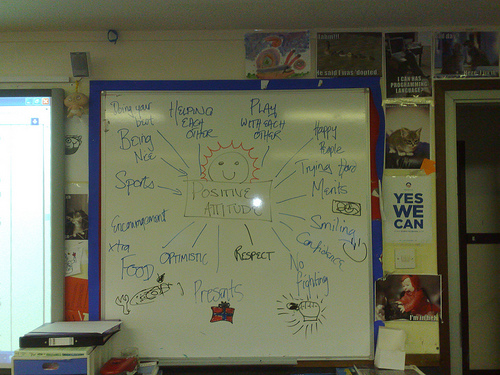


Right now, across the nation, there are probably thousands of employees, maybe even more, uttering “Thank God It’s Friday,” or “TGIF,” or just thinking and talking about their weekend plans instead of keeping their minds on the tasks of their occupation.
Job dissatisfaction is a common ailment; temporary for some workers, chronic for others. It spans all types of employment. We all know someone who grumbles through the day doing something that might be considered our dream job; just as we all know people working at jobs we would never want to do, and yet they always come to work smiling and eager to seize the day.
Even though employers who have experience hiring people with disabilities commonly report them as exhibiting all the traits one associates with job satisfaction — good punctuality, high retention, positive attitude — it doesn’t necessarily follow that they are happier employees as a whole. But perhaps because they live in a world which presents them challenges every time they leave their home they are more equipped, mentally and emotionally, to cope with some of the small workplace annoyances that drive others up the proverbial wall.
Case in point is Zoe Gross, who wrote a wonderfully entertaining and insightful guest post for The American Association of People with Disabilities (AAPD) Power Grid Blog this past Wednesday. Gross has fun with the concept of “Business Casual,” combining it with an outdated acronym for people with an autism spectrum disorder, PDD-NOS (Pervasive Development Disorder Not Otherwise Specified) to describe how she navigates her government job, calling it Business-NOS:
Business-NOS is a standard of professionalism which does not require eye contact, stillness, or median abdominal strength. Business-NOS means putting your passion and energy into your work, not into trying to look normal. Business-NOS is knowing you do good work, and not buying into the lie that someone like you couldn’t possibly do the good work that you are doing.
Good work is all that’s important to an employer at the end of the day. It would be impossible to backlink to all the blog posts about good work being done by people with disabilities. Fortunately, it’s not necessary because the media continues to deliver more examples of the value these people bring to the workplace on a daily basis, including this Associated Press article found in Thursday’s edition of The Maryland Daily Record that shares a number of success stories from the perspective of both employees with disabilities and their employers in a number of work environments.
The common thread through all of them is the positive, can-do attitude of the worker and the understanding of each employee’s overarching goal — no matter whether they are shredding paper, roasting coffee or doing other tasks — is to feel as though they are making life matter by being part of the workforce. As Legends Cafe owner Jim Fields says of his four employees with disabilities:
All they want to do is be normal. They want to work, get a paycheck and be treated like everyone else… You give them a chance, and they’ll prove themselves.
Comments?
Image by grahamwell (graham), used under its Creative Commons license.